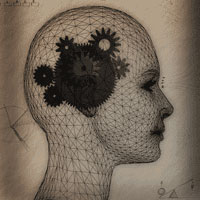Psychoanalysis Is Pseudoscientific Quackery?
by John

I had rather believe all the tales in the Talmud, than that there is any truth to psychoanalysis. Sigmund Freud was a quack, although a successful one. There is no “id,” “ego,” or “superego,” the concepts being either superfluous or unverifiable. In reality, there is no “Oedipal complex,” the tomfoolery used by Freudian quacks to mean a boy wants to have sex with his mother and despises his father as a rival.
Psychoanalysts claim that the complex is so deep-seated that it does not lend itself to easy study. It is supposedly a part of the unconscious, so that people are not consciously aware when it operates. Yet this is a two-way street, since in so arguing one can point out that if it is so archaic or mentally repressed, it is also impossible for even the Freudian cranks to discover. If the complex is part of primitive instinct, how can you even find evidence for it or say it exists in the first place?
Freudian psychobabble caught on no place so well as the United States. I believe the reason has to do with professional aggrandizement, with the need of psychoanalysts and “depth psychology” writers to carve out a living for themselves. The original psychoanalytic quack—who somehow “discovered” facts about the human mind that no thinker for millennia had any notion of—did much the same thing. Freud was a Jew who never would have achieved such fame as an ordinary physician. Unfortunately, some psychologists who should know better partially incorporate psychoanalysis into their publications and research.
They tolerate the pseudoscience instead of criticizing it as unscientific. Thus, DSM (Diagnostic and Statistical Manual, the publication of the American Psychiatric Association) lists a few “illnesses” that exist nowhere but in the mind of a few sorely deluded psychoanalytic practitioners. Where is the evidence for these bizarre theories? How can they possibly be accepted when they are not empirical? Why did noone else for thousands of years perceive these ideas until the “great discoverer of the unconscious mind” came along trumpeting some crazy notions about a vagina with teeth?
“Oedipal” quackery states that mother-son incest has to be overcome for a boy to mature into a psychologically-well-adjusted man. Psychoanalytic writers claim that many social problems have a basis in this alleged complex. But mother-son is one of the rarest types of incest. The most common types are father-daughter, brother-sister, and other male-initiated ones such as grandfather-granddaughter. Indeed, mother-son incest would strike most people as horrifying. What male would want to have sex with his mother? Such a scene would be shocking, yet undaunted the “analysts” push their gullible notions into psychiatry, psychology and other areas where people are too stupid to know better.
One standard dictionary—The Random House College Dictionary—defines “Oedipus complex” as “the unresolved desire of a child for sexual gratification through the parent of the opposite sex, especially the desire of a son for his mother. This involves, first, identification with and, later, hatred for the parent of the same sex, who is considered by the child as a rival.” You would think that the editors of the dictionary would realize that most boys love their father and do not, subconsciously, unconsciously or preconsciously, wish to eliminate his presence. “See Electra complex,” says the dictionary, defined as “the unresolved desire of a daughter for sexual gratification from her father.” Obviously, like blue for boys and pink for girls, you cannot have an Oedipal for the former without likewise burdening the latter with an imaginary “Electra”! Another dictionary—The American Heritage Dictionary—defines “Oedipus complex” as “libidinal feelings in a child, especially a male child, for the parent of the opposite sex, usually accompanied by hostility to the parent of the same sex and generally manifesting itself first between ages three and five.” Parents beware, check your children for Oedipal symptoms, the boy for putting his own “construction” on his mother’s lack of a penis, it having been bitten off, and the girl for troublesome penis envy, though it would only be fair if you could spread further confusion and parental incompetence with clitoris envy.
Psychoanalysis is unscientific. Its theories and assumptions are not based on observation or experiment. It is an impediment to progress in social science and it is a social nuisance, and society would be better off without its bizarre armchair fictions.
phoning in the U.S. 1-800-462-6420
Subscribe to Pravda.Ru Telegram channel, Facebook, RSS!





